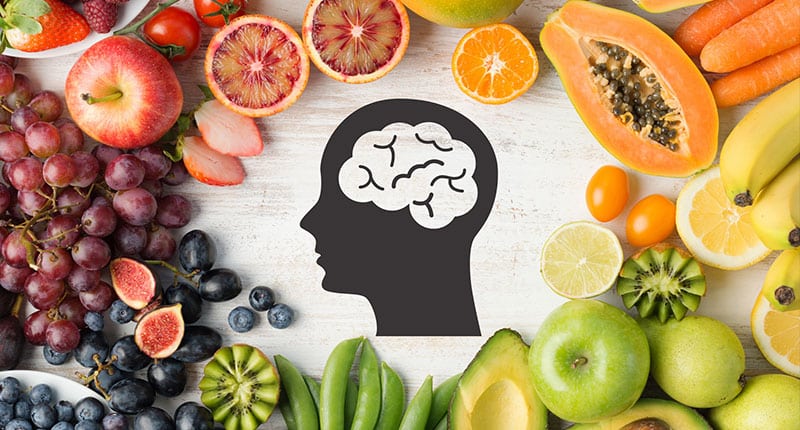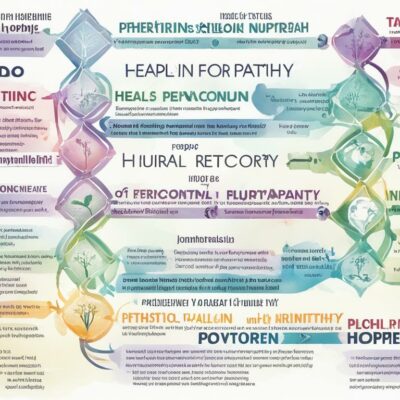
The Importance of Health Nutrition for a Balanced Lifestyle
Living a balanced and healthy lifestyle is crucial for overall well-being and longevity. One of the key components of a balanced lifestyle is maintaining proper nutrition. Nutrition plays a vital role in supporting physical and mental health, boosting energy levels, and preventing the onset of chronic diseases. In this article, we will explore the importance of health nutrition and how it contributes to a balanced lifestyle.
Understanding the Basics of Health Nutrition
Proper health nutrition involves consuming a well-balanced diet that provides essential nutrients required for optimal bodily functions. It focuses on obtaining the right balance of macronutrients and micronutrients while avoiding excessive intake of unhealthy components such as added sugars, saturated fats, and sodium.
The Role of Macronutrients in a Balanced Diet
Carbohydrates
Carbohydrates are the primary source of energy for the body. They can be categorized into complex carbohydrates (found in whole grains, legumes, and vegetables) and simple carbohydrates (found in refined sugars and processed foods). Balancing carbohydrate intake is essential for maintaining stable blood sugar levels and sustaining energy throughout the day.
Proteins
Proteins are the building blocks of our body. They are essential for growth, repair, and maintenance of body tissues. A well-rounded diet should include lean sources of protein such as poultry, fish, legumes, and dairy products. Adequate protein intake supports muscle development and helps regulate metabolism.
Fats
Although often associated with negative connotations, fats are an essential part of a healthy diet. They provide energy, support cell growth, protect organs, and facilitate the absorption of fat-soluble vitamins. Opt for healthier sources of fats like avocados, nuts, seeds, and olive oil while limiting saturated and trans fats.
Micronutrients: The Power of Vitamins and Minerals
Micronutrients, including vitamins and minerals, are vital for maintaining various bodily functions. They contribute to the proper functioning of the immune system, support bone health, aid in digestion, and act as antioxidants to combat oxidative stress. Ensure a diverse and balanced diet to obtain an array of essential micronutrients.
Hydration: The Forgotten Essential
Water is often overlooked when discussing nutrition, yet it is a fundamental component of a healthy lifestyle. Staying hydrated is crucial for maintaining optimal bodily functions, regulating body temperature, and supporting digestion. Aim to consume an adequate amount of water daily and limit sugary drinks.
The Impact of Nutrition on Physical Health
Proper nutrition has a direct impact on physical health. A balanced diet provides the necessary nutrients to support healthy bodily functions, strengthen the immune system, maintain a healthy weight, and reduce the risk of chronic diseases such as heart disease, diabetes, and certain types of cancer.
Enhancing Mental Well-being through Nutrition
Nutrition not only affects physical health but also plays a significant role in mental well-being. A well-balanced diet can improve mood, increase focus and concentration, and reduce the risk of mental health disorders such as depression and anxiety. Consuming foods rich in omega-3 fatty acids, antioxidants, and vitamins promotes brain health.
Nutrition and Disease Prevention
Adopting a nutritious diet is an effective strategy for disease prevention. Nutrient-rich foods boost the immune system, reduce inflammation, and provide antioxidants that protect against cell damage. Eating a variety of fruits, vegetables, whole grains, and lean proteins can lower the risk of chronic diseases and improve overall health outcomes.
The Role of Nutrition in Weight Management
Maintaining a healthy weight is a key component of a balanced lifestyle. Proper nutrition supports weight management by providing essential nutrients while controlling caloric intake. Incorporating whole foods, portion control, and mindful eating habits can help achieve and maintain a healthy weight.
The Benefits of Balanced Nutrition for Children and Adolescents
Children and adolescents have unique nutritional needs as they are growing and developing rapidly. A balanced diet during this period ensures proper physical and cognitive development, boosts immune function, and reduces the risk of childhood obesity and related health problems. Encouraging healthy eating habits from an early age sets the foundation for a lifetime of good health.
Strategies for Achieving a Balanced Diet
To achieve a balanced diet, consider the following strategies:
- Plan meals in advance and incorporate a variety of food groups.
- Fill half your plate with fruits and vegetables.
- Choose whole grains over refined grains.
- Opt for lean sources of protein.
- Limit added sugars and sodium.
- Practice portion control.
- Cook and prepare meals at home whenever possible.
Incorporating Exercise into a Nutritious Lifestyle
Regular physical activity complements a healthy diet and contributes to a balanced lifestyle. Engaging in exercise helps maintain a healthy weight, improves cardiovascular health, strengthens bones and muscles, and enhances overall well-being. Find activities you enjoy and strive for at least 150 minutes of moderate-intensity exercise per week.
Overcoming Challenges and Maintaining Consistency
Adopting and maintaining a balanced lifestyle can be challenging. To overcome obstacles and stay consistent with healthy eating habits, consider the following tips:
- Set realistic goals and track your progress.
- Seek support from family, friends, or a nutritionist.
- Practice mindful eating and listen to your body’s hunger and fullness cues.
- Prepare healthy snacks and meals in advance.
- Stay motivated by trying new recipes and exploring different cuisines.
The Role of Nutrition Labels and Food Education
Understanding nutrition labels and food education is essential for making informed choices. Reading and interpreting nutrition labels can help identify nutrient-dense foods, monitor portion sizes, and avoid hidden sugars and unhealthy additives. Stay updated with reputable sources of nutritional information to make informed decisions about your diet.
The Influence of Social and Environmental Factors on Nutrition
Social and environmental factors significantly impact our nutrition choices. Availability, accessibility, cultural influences, and social norms all play a role in shaping our dietary habits. Recognizing these factors and making conscious choices can help overcome unhealthy influences and promote a balanced, nutritious lifestyle.
Conclusion
In conclusion, health nutrition is paramount for achieving and maintaining a balanced lifestyle. It provides the necessary fuel for the body, supports physical and mental well-being, prevents chronic diseases, and enhances overall quality of life. By adopting healthy eating habits, staying hydrated, and incorporating regular exercise, individuals can optimize their health and well-being for the long term.
FAQs
1. How can I improve my nutrition?
- To improve your nutrition, focus on consuming a well-balanced diet that includes a variety of fruits, vegetables, whole grains, lean proteins, and healthy fats. Limit processed foods, added sugars, and sodium. Stay hydrated and pay attention to portion sizes.
2. Is it necessary to take supplements for nutrition?
- Supplements can be beneficial if you have specific nutrient deficiencies or dietary restrictions. However, it’s best to obtain nutrients from whole foods whenever possible. Consult with a healthcare professional or registered dietitian before starting any supplements.
3. Can nutrition alone help with weight loss?
- While nutrition plays a significant role in weight management, it is not the sole factor. Combining a balanced diet with regular physical activity and a healthy lifestyle is key to achieving sustainable weight loss.
4. How does nutrition affect my immune system?
- Proper nutrition supports a healthy immune system by providing essential vitamins, minerals, and antioxidants. A well-nourished body is better equipped to fight off infections and diseases.
5. Can nutrition impact my mental health?
- Yes, nutrition has a profound impact on mental health. Consuming a nutrient-rich diet can improve mood, cognitive function, and overall mental well-being. Certain nutrients, such as omega-3 fatty acids and B vitamins, are particularly beneficial for brain health.











